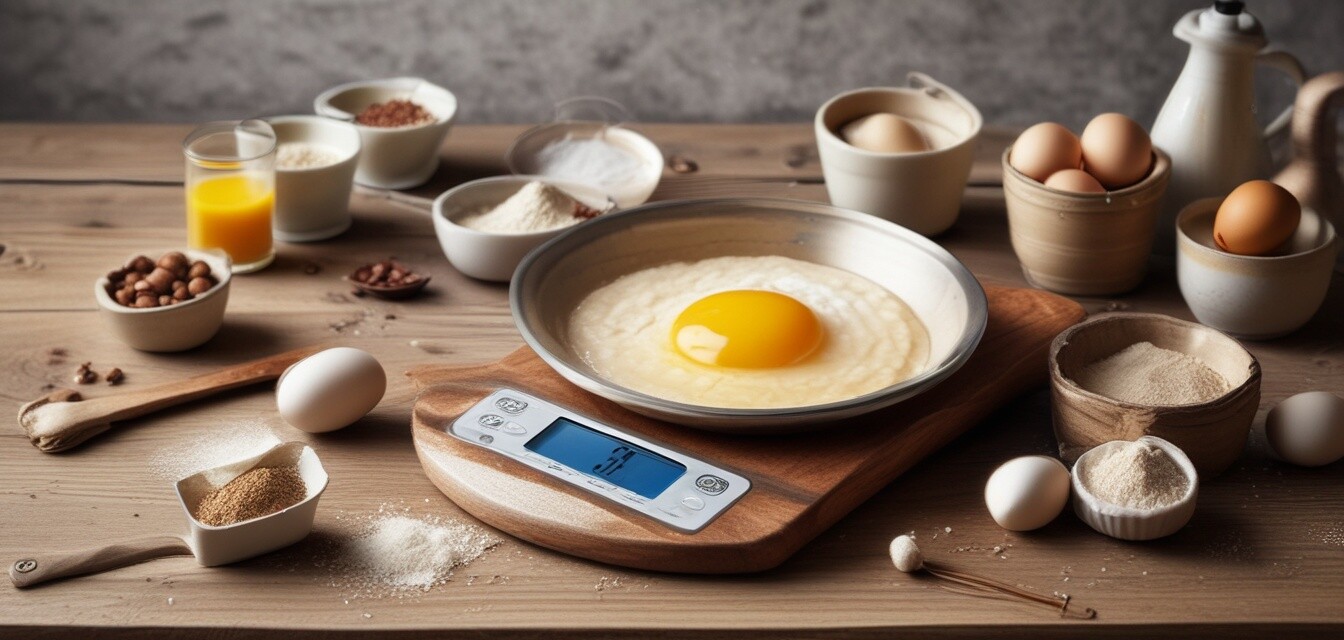
Selecting the Ideal Kitchen Scale for Baking
Key Takeaways
- Choose between digital and mechanical scales based on your needs.
- Look for features like tare function, measurement units, and weight capacity.
- Consider the size and design of the scale for your kitchen space.
- Read reviews and recommendations to ensure product reliability.
- Understand the importance of precision and ease of cleaning.
Baking is an art that demands precision. One essential tool every baker needs in their kitchen is a reliable kitchen scale. But with so many options available, how do you select the ideal kitchen scale for your baking needs?
Why a kitchen scale is important for baking
Using a kitchen scale can drastically improve the accuracy of your measurements, which is vital for baking success. Unlike volume measurements, weight measurements ensure that every ingredient is added precisely, yielding consistent results. Here’s why you should invest in a kitchen scale:
- Precision in measurements leads to better baking outcomes.
- Reduces the chances of ingredient miscalculations.
- Versatile for various cooking tasks beyond baking.
Types of kitchen scales
When selecting the right kitchen scale for baking, you'll primarily choose between two types: digital and mechanical scales. Here’s a breakdown of each:
| Type | Advantages | Disadvantages |
|---|---|---|
| Digital |
|
|
| Mechanical |
|
|
Features to look for in a kitchen scale
Here are some essential features that you should consider when selecting a kitchen scale:
- Tare function: Allows you to zero out the weight of containers for accurate measuring.
- Measurement units: Look for scales that can switch between grams, ounces, and pounds.
- Weight capacity: Ensure the scale can handle the weight of your baking ingredients.
- Design and size: Choose a scale that fits well in your kitchen, is easy to store, and has a clear display.
- Cleaning: Opt for models that are easy to clean and maintain.
Top considerations before buying
Before making a purchase, consider the following:
- Baking frequency: If you bake often, invest in a more reliable and precise scale.
- Budget: Determine how much you are willing to spend.
- Space availability: Assess how much counter space you have for a scale.
- User reviews: Read reviews and check product ratings for reliability.
Understanding measurement accuracy
For baking, accuracy is crucial. Minor inaccuracies can lead to cakes that don't rise, cookies that spread too much, or bread that fails to rise. It’s important to choose a scale that measures down to the gram or at least 0.1 ounces for the best results.
Pros of using a kitchen scale
- Increased accuracy in ingredient measurements.
- Versatile for various cooking techniques.
- Simplifies recipes that require precise ratios.
Cons of using a kitchen scale
- Initial learning curve for new users.
- Extra kitchen tool that requires space.
Additional tips for beginners
Getting started with your new kitchen scale
- Always calibrate your scale before the first use.
- Use the tare function to prevent errors in ingredient addition.
- Practice with common recipes to familiarize yourself with weights.
- Keep your scale clean to ensure consistent measurements.
Conclusion
Selecting the ideal kitchen scale for baking doesn't have to be daunting. By understanding the types, features, and considerations, you can choose a scale that fits your baking style perfectly. Whether you are a novice baker or a seasoned pro, a good kitchen scale is an investment in your culinary success.
For more guides on essential kitchen products, check out our Buying Guides. You may find valuable insights on other kitchen gadgets necessary for your baking endeavors.